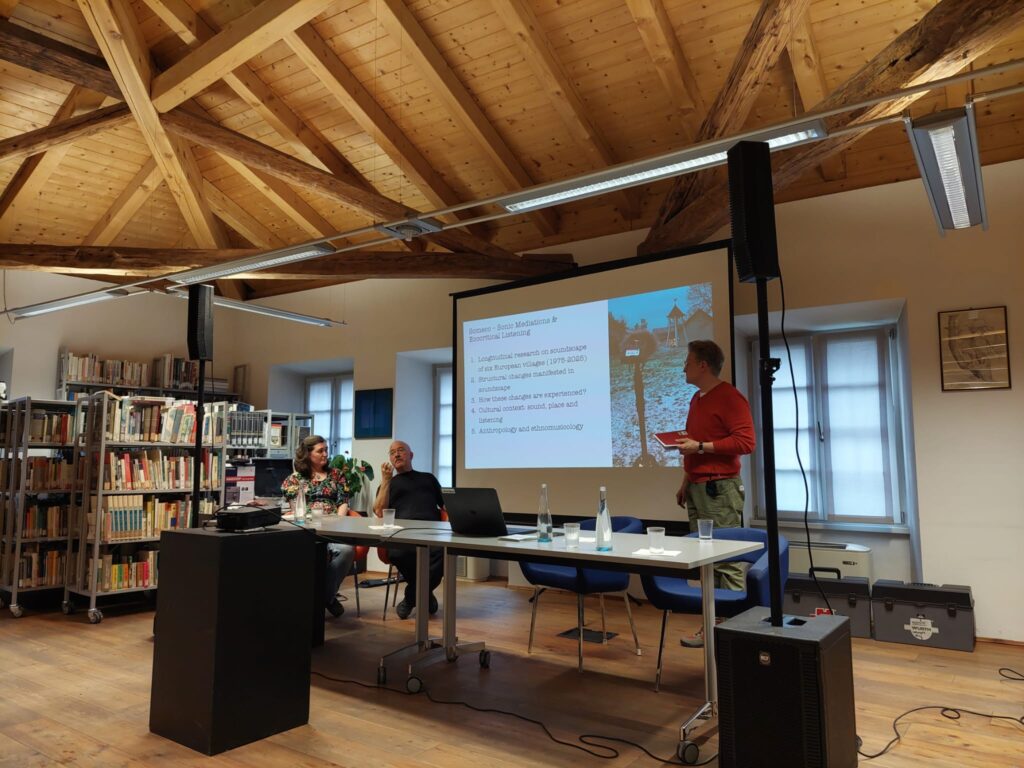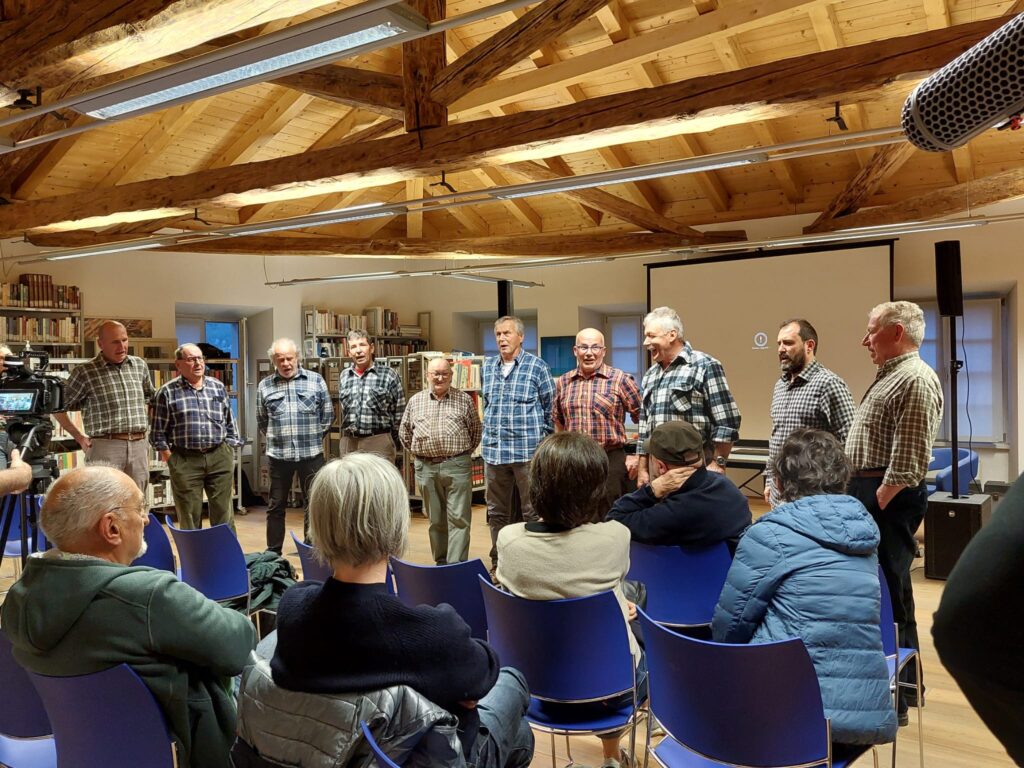“You hear more dogs than children”: Workshop on sound and change in Cembra

Text: Kaj Ahlsved, Heikki Uimonen, Meri Kytö
As a method of eliciting information from the expert listeners of the villages – the villagers themselves – SOMECO team organises public workshops during our fieldwork. Apart from that, we are aiming to present our project to those interested and to bring back the earlier research results to the villages.
On Thursday night a listening workshop was carried out in Biblioteca Comunale in Cembra attracting some 30 participants. As most of us group members don’t speak Italian we were very fortunate to have our dear colleague Stefano Zorzanello to translate our presentation and the audience discussion after that. Stefano has been an invaluable aid for us during our stay here not only translating but keeping us informed on local activities and introducing us to the villagers (thank you Stefano!).

We were positively surprised by the interest that the event had sparked. We were also very honored that the local spontaneous choir wanted to perform a few songs at the event, including their arrangement of Jean Sibelius’ hymn “Finlandia”. The choir had visited Finland in 2009, and since then this song has been in their repertoire .

We briefly presented our research, its roots in the Five Villages Soundscapes project of 1975, the follow-up Acoustic Environments in Change from 2000, showed some pictures and played some recordings from 1975 and 2000 to spark the discussion. The discussions with the villagers were indeed invaluable resources for information for us as they contextualize our own experiences, observations and recordings.
In 1975 the researchers also visited Cembra during Easter, and there is a recording where children are playing in the snow. The recording generated lots of smiles and laughter. But on a more serious note, one of the attendees commented that while kids still, of course, play outside, there is not that much snow anymore. The snow gives the recording a special character since it dampens the sound and the echoes of the people moving around on the streets.
There is also the sense that, in general, this kind of spontaneous playing in the streets – which in the old part of the town can be very vocal – has decreased. Also, today the afternoons of the school days are not as free as before and much of the children’s activities are organized (clubs, sports, etc.). As one put it, nowadays you can hear more dogs than children outside.
The recording also features a very loud moped. Mopeds are perhaps not as common now as before, one of the attendees commented. The reasons behind this are manifold: youngsters might have other priorities nowadays, parents are more willing to drive the kids to activities, and public transportation is also more accessible than before.
In the Sound Preference Tests conducted in 2000, the sounds of cars were the most disliked sounds. As we don’t have the results of the 2025 tests yet, we don’t know if attitudes have changed. But we have noticed that the traffic in Cembra has increased since 2000. This was also told to us on several occasions. On the other hand, the cars and their motors are not as loud as they were before, as one of the attendees of the workshop concluded.
The recordings also sparked many other discussions, for example about the interpretation and “language” of the church bells that are distinct features of the soundscape of Cembra valley.
Interestingly, the topic of language was also brought to discussion – just like Skruv and Bissingen, but from yet another perspective. When we listened to the recording from the old shoemaker shop (https://soundcloud.com/akueko/cembra-at-an-old-shoemaker-in-cembra), it was pointed out that the use of the local dialect has decreased, and it has become more watered down due to the influence of “standard” Italian. (Of course we cannot tell the difference.) The use of dialect was also discussed after Sound Preference Tests at school. A young boy told us that he will only talk dialect with his future children.